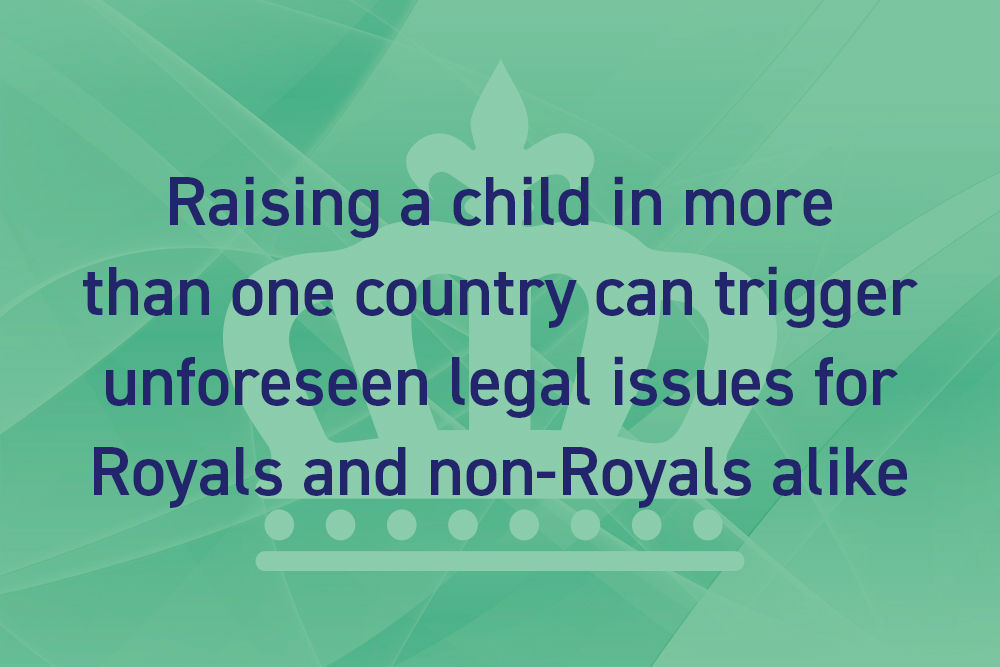Raising a child in more than one country can trigger tricky legal issues, for both Royals and non-Royals, in the unhappy event of a future separation or divorce.
As we all know, Meghan and Harry are currently finalising their personal and official plans for the future. Media commentators have highlighted a number of potentially complex issues. One aspect that has been understandably overlooked is that when Meghan and Harry settle in Canada, it is likely that as time passes they, and their son Archie, will be considered habitually resident there rather than in England. But what happens if one of them wants to move abroad or return home in the unhappy event of a future separation?
Where a child has habitual residence can often determine which country’s court has the jurisdiction to deal with custody and contact disputes. The law can often be markedly different in the two countries and so when you start to think about relocating it is a good idea to take advice from a family solicitor in the country you are currently living in.
In the case of the Sussexes, if they did separate in the future then the move to Canada could make a divorce more difficult. Whilst signing a pre-nuptial agreement would help them to sort out financial matters, if Meghan wanted to remain in Canada with Archie, Harry may need to apply to the Court for permission to relocate with Archie to England. Persuading courts to allow you to relocate with children can often be far more difficult than you might expect and such intentions require a lot of planning if they are to succeed.
Hopefully all will be well for the Sussexes but, whether you are a Royal or otherwise, bear in mind that raising children in more than one country can lead to unintended issues further down the line.


